The motorcycle-loving, jetboat-driving, Zeman Mccreadie makes an unlikely conservationist. Still, he’s spent 18 years educating people about wildlife off our west coast. The seasoned boat skipper explains the importance of protecting Pembrokeshire’s marine life.
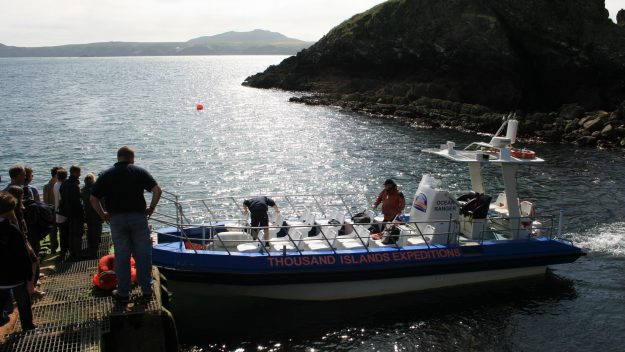
“Years ago, I was out on the boat 10 miles offshore,” said Zeman, “We were with dolphin, and it just stuck me, it’s like, it’s slightly absurd that I’m competing with you for food.”
Nearly 20 years of working as a skipper yields interesting insights.
“In Pembrokeshire,” he said, “The two things that threaten wildlife are the weather and man. And ultimately, we seem to be effecting the weather as well.”
As Zeman spoke, perched on his motorbike, the rain came down so heavily on the roof his man-cave shed at times he was hard to hear.
Zeman has a passion for motorcycles, and an interesting employment history including operating motorbike tours in Cambodia. He’s clearly a man’s man with a thrill-seeking side.
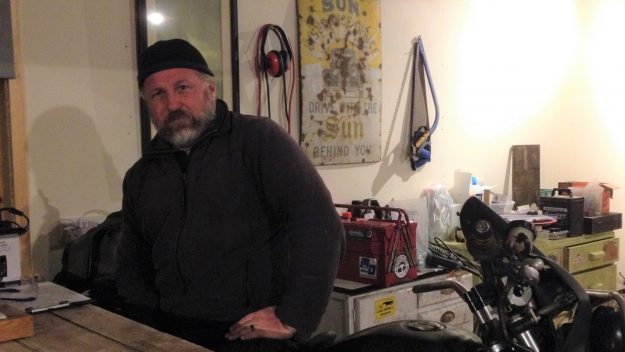
“Skippering in some of the biggest tides in the world and some of the biggest tidal races,” he said, is part of what kept him interested in boat tours. “We get a tidal race that goes up to 18 knots at its very fastest, which puts it up there with rivers. They’re the third biggest tides in the world… which means that in one day the sea will rise and fall by twenty-one feet, so, morning to lunch time will be very, very different.”
The company that Zeman has done much of his skippering for, Thousand Island Expeditions, works with the RSPB. The RSPB own several islands off the Pembrokeshire coast and maintain them as nature reserves.
Ramsey Island, near St Davids, is closest to the shore and Thousand Island Expeditions provide the ferry service for visitors.
The picturesque island is actually fraught with danger. As Zeman explained, it has, “Probably one of the top five most difficult harbours to put a boat into, commercially, in the UK because of the tidal race, being right next to the reef called the Bitches and the huge tidal difference that we get every day.”
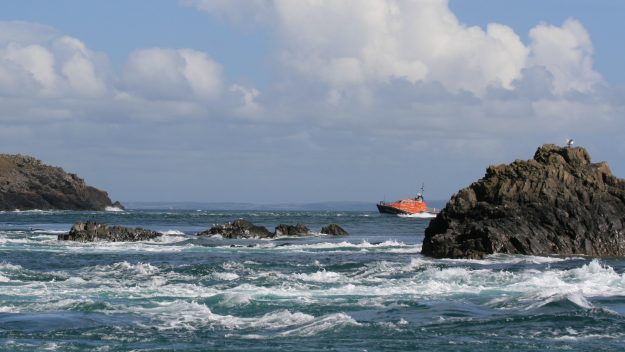
Although the adventurous nature of the job has its appeal, Zeman has been pulled back to Pembrokeshire for other reasons too. “There’s not many places in the world that are like Pembrokeshire,” he said, “When I was kid growing up here, we thought everywhere had huge populations of seabirds and offshore wildlife and it’s not the case at all. It’s actually in very small pockets.”
Ramsey is one of Europe’s biggest seal colonies, and Grassholm island further offshore is home to over 100,000 gannets, which are the largest seabird in the north Atlantic.
“There’s that Chris Packham quote… the Pembrokeshire coastline has wildlife to rival the Serengeti in terms of numbers.”
Zeman is not a not character you might think would be naturally drawn to wildlife, but his years of experience working in the marine environment have given him a rare knowledge and appreciation of it.
“Seeing killer whale had the biggest impact,” he said, “But then that’s the biggest impact to a boat skipper who works every day amongst dolphin, and seals, and the third largest single rock gannetry in the Northern Hemisphere. So, that is the most incredible experience of a career of incredible wildlife experiences. It’s at the top, but it’s only just at the top.”
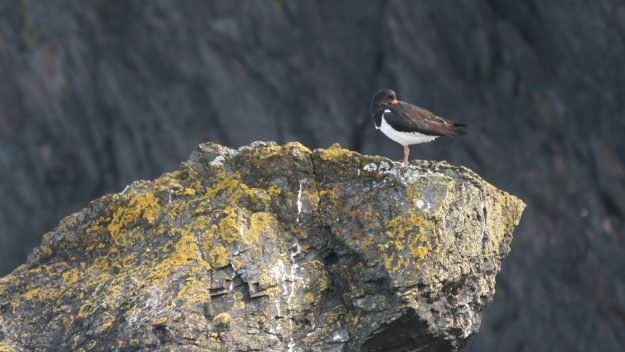
Zeman is keen to pass on the appreciation for this unique environment, “I think that what we can do… is show people the environment and talking to them about how we effect it… then maybe suggesting that we could do things differently in order to not be such a threat to that wildlife.”
Pembrokeshire’s islands are extremely important in their own right for protecting marine life. As Zeman puts it, “They’re essential, absolutely essential. If you’re getting decreasing bird populations in other areas and we’re getting increasing, then we must still have fish stocks that birds can feed from.”
There’s more to them than that. This remote corner of Wales provides a window into the wonders of the marine environment. “When people come face-to-face with an Atlantic grey seal,” he said, “It’ll be by far the largest wild animal they’re ever been close to, and, because the seals are very relaxed around the boats, they come to the boats so they’re almost within touching distance… The biggest wild animal to touch land in the United Kingdom and it’s almost touchable.”
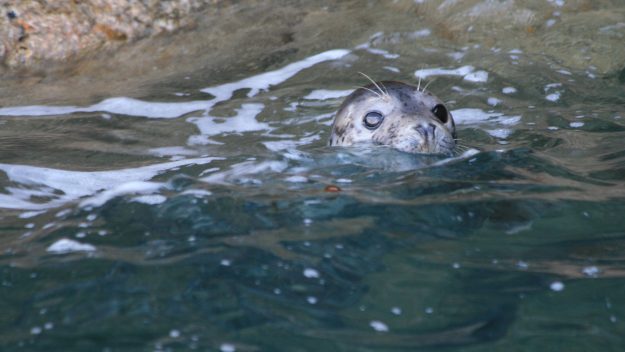
Aside from making great holiday memories, these experiences might have a bigger influence. “It’s like the David Attenborough effect,” Zeman explained, “It’s a similar thing on a much smaller scale. City people need to go into the environment to learn more about it. If they experience it first hand, then they’re going to better understand the problems that face it.”
What’s more, marine wildlife watching trips world over have been influenced by Pembrokeshire’s pioneers. Zeman explained that Rigid-hulled inflatable boats – RHIBs – increased speed and efficiency while reducing cost, making offshore dolphin watching trips more accessible.
“The jet-driven RHIB industry started in St Davids,” he said, “There were a couple of people worldwide that started that industry and one of the guiding lights, Shaun White, built his first boat on Ramsey Island.”
Although much of the area’s unique wildlife populations seem stable, Zeman has concerns about over-fishing. “As they’re increasingly tracking the birds with modern technology,” he said, “They’re finding that they’re having to travel further and further to find the same fish.”
“We’ve already made a mess of the land,” he said, “And now we’re out here… not even competing with the dolphin just for food, but we’re taking that fish and we’re feeding it to our cats, we’re putting it in fertiliser… Or making skincare products out of it… We’re actually down to the point where we’re taking krill away from whales because we’ve already eaten all the herrings, all the mackerel is disappearing, the cod were almost extinct.”
The man is measured in his assessments of wildlife in the area, he’s quick to point out that his experiences are anecdotal, not wanting to draw unscientific conclusions. Still, he went on to say, “We seem to be observing less common dolphin, and not in such great numbers.”
It seems we’re lucky to still have this pocket of almost pristine nature just two hours’ drive west of Cardiff, but we shouldn’t take it for granted.
As Zeman said, “The decision makers of the future… the future professionals and politicians… They’ve got to be looking to the future otherwise there won’t be any environment for us to pass on to our kids.”
